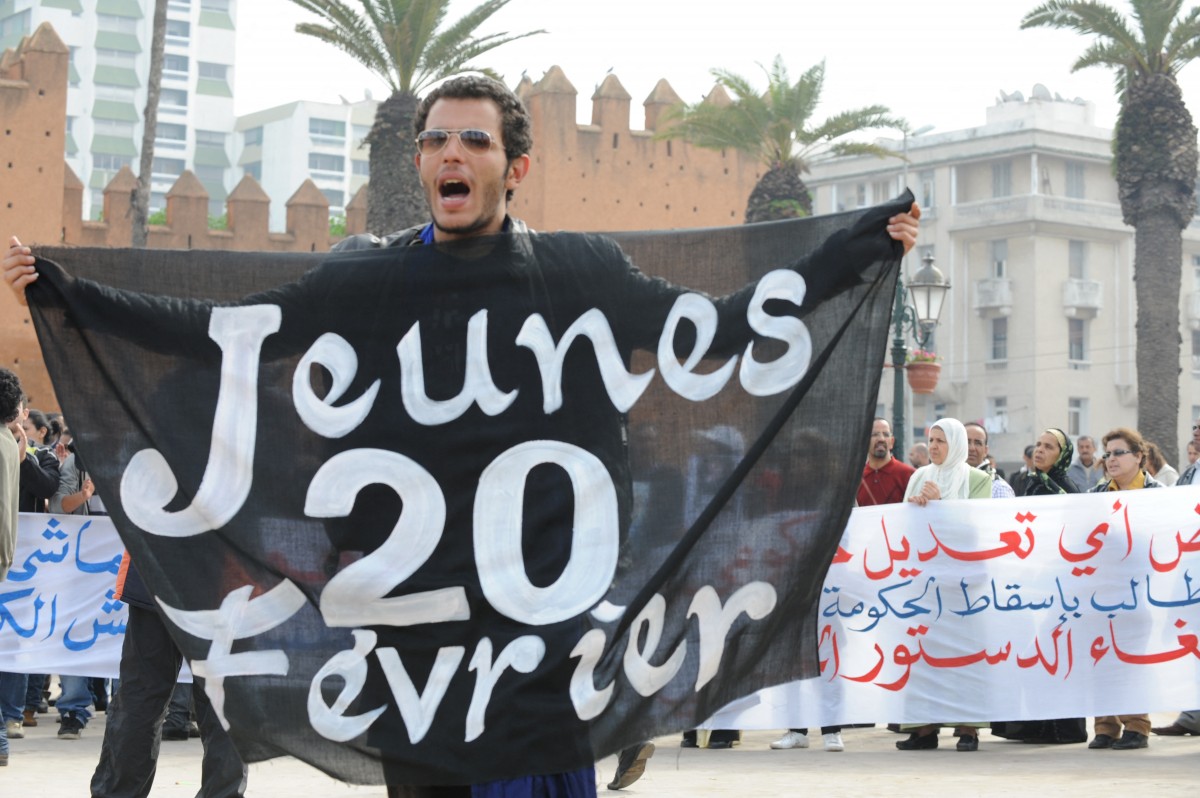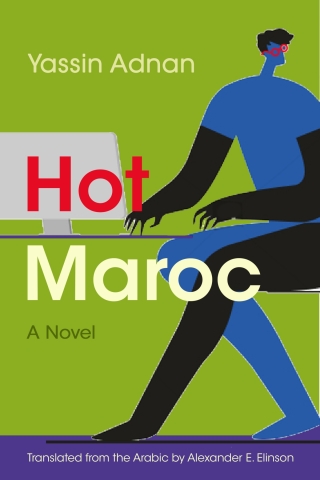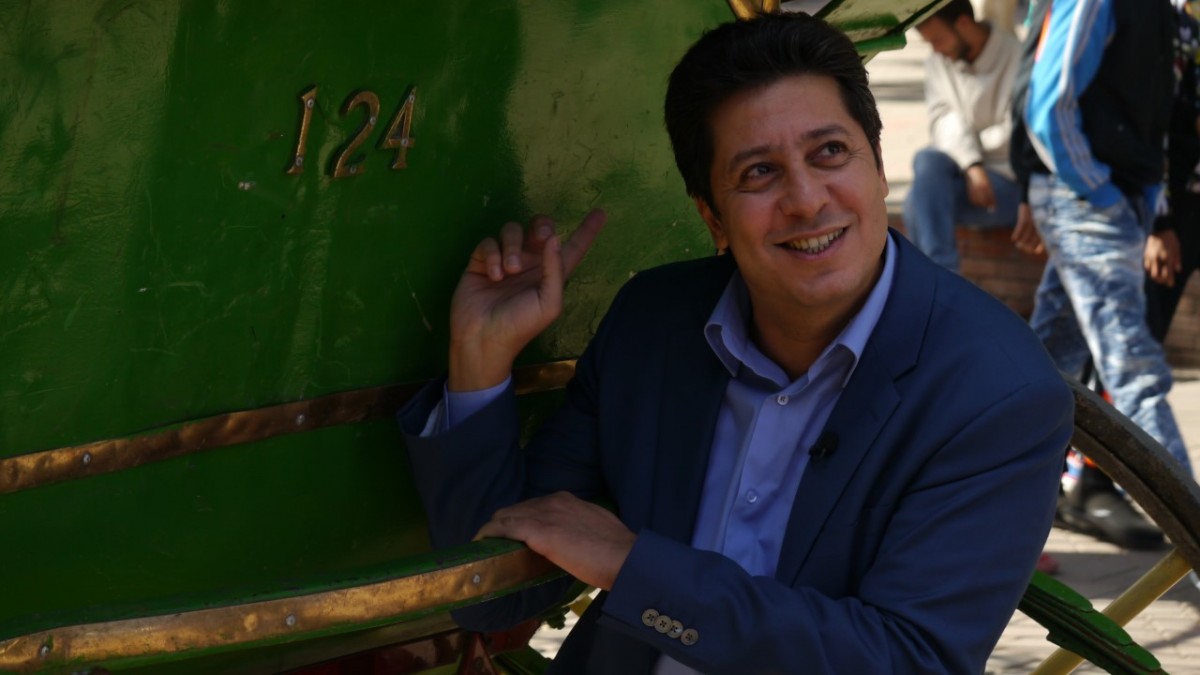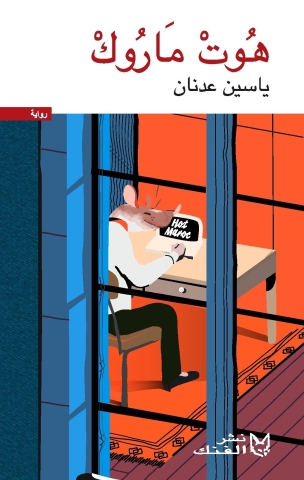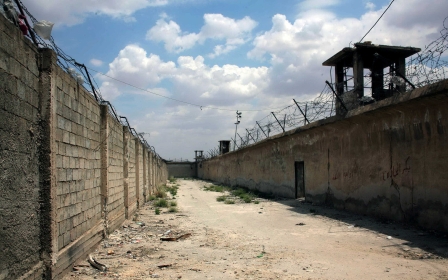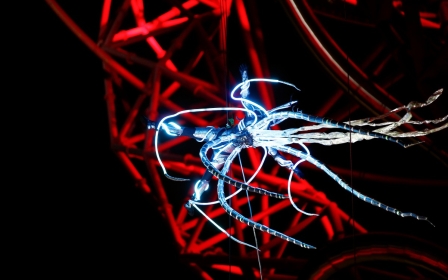'Hot Maroc': Yassin Adnan's satirical debut novel plots the death of Moroccan politics
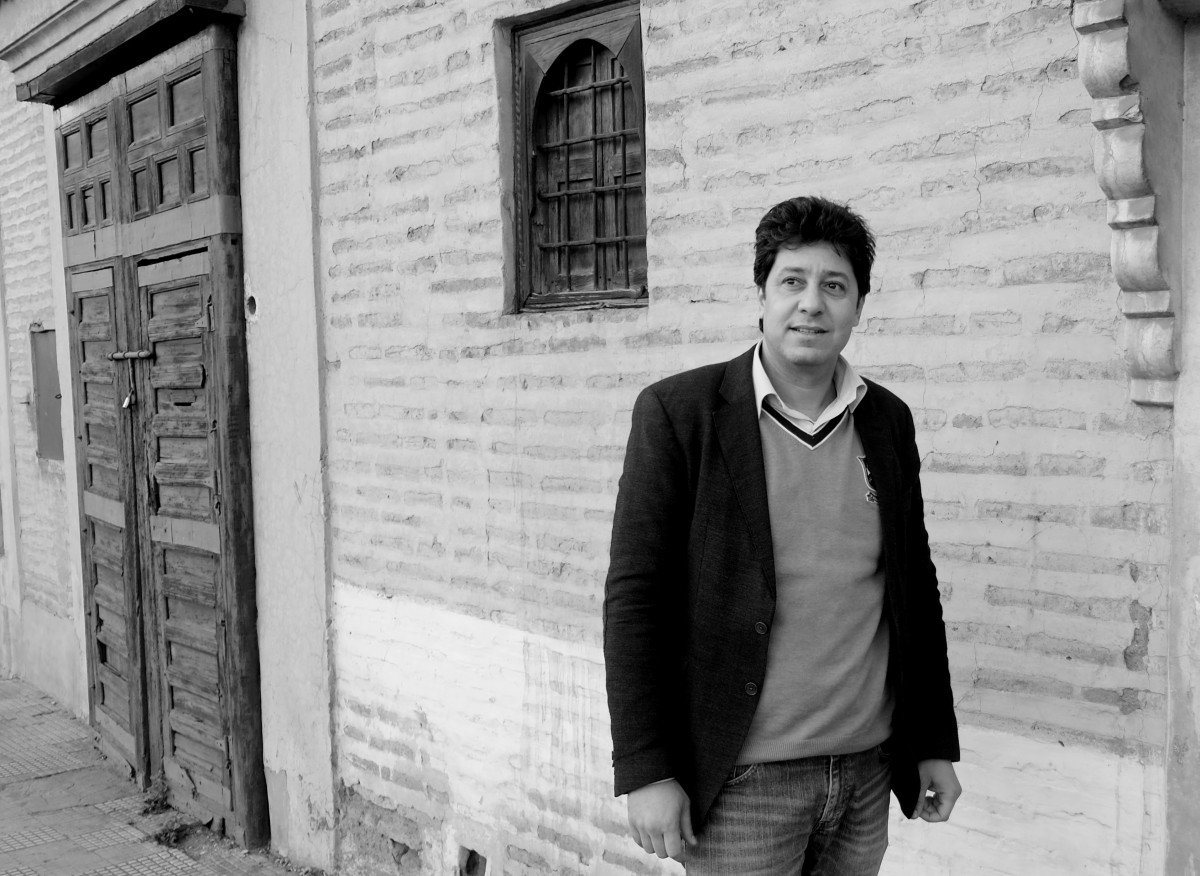
In early 2011, thousands of Moroccans joined the stream of regional uprisings demanding social and political freedoms in their country.
Triggered by events in its North African neighbours, Tunisia and Egypt, the February 20 Movement was born, named after the date of the first planned nationwide protest, which would soon spark further mass demonstrations.
Though the constitutional reforms put forward in response by King Mohammed VI failed to deliver on their promises, the fervour running through the country at the time - as in the rest of the region - was high. Tech-savvy Moroccan activists turned to the internet to voice their opinions and mobilise in unprecedented ways.
In addition to calls for social and political reform, threats and intimidation also rippled through the cybersphere. A propaganda campaign online and in the government-run press sought to slander the February 20 youth, calling them apostates, homosexuals, or supporters of the Polisario Front independence movement.
New MEE newsletter: Jerusalem Dispatch
Sign up to get the latest insights and analysis on Israel-Palestine, alongside Turkey Unpacked and other MEE newsletters
It was this antagonistic climate that inspired Moroccan cultural journalist, poet and literary critic Yassin Adnan to begin penning his debut novel.
Following unpleasant encounters with online trolls after he launched a cultural television programme in 2011, Adnan began to write a short story at a writer’s residency in France’s southern Cote d’Azur.
And so the character of Hot Maroc’s protagonist Rahhal Laaouina was born.
Although Adnan had planned to complete the short story during the three-week residency, he quickly found himself caught up in Laaouina’s story, which dragged him down a labyrinth of narrative that lasted far longer than he'd envisioned.
That story eventually evolved into Hot Maroc, a time-travelling, contemporary, satirical tale of political and social changes in contemporary Morocco.
Originally written in Arabic, the novel was published in 2016, five years after Adnan’s initial musings. The following year, the book was long-listed for the International Prize for Arabic Fiction.
Last year, it was translated into French and the English version is forthcoming from Syracuse University Press in July, translated by Alexander E. Elinson.
Regime change
The plot centres around Laaouina, an insignificant man whom we meet as a student at the Cadi Ayyad University in Marrakech. Ignored on the whole by his peers, he shrinks back and begins to observe them instead, comparing them to animals and setting up the novel’s uniquely bestial theme.
‘Who are these anonymous people with borrowed names that plague the online social media atmosphere?'
- Yassin Adnan, Moroccan writer and literary critic
Laaouina meets a woman and after they marry, his new wife helps him secure work at an internet cafe. He eventually finds himself working as a paid online troll, creating multiple personas to anonymously defame others.
Midway through the novel, Laaouina discovers a news site called Hot Maroc, which covers opinion, news, culture and crime. He ends up using it to attack those he considers his enemies: pretty much anyone who has been more successful than him.
“I was wondering: who are these anonymous people with borrowed names that plague the online social media atmosphere? And why do they intend to spoil people's dreams and attack anything that moves?” Marrakech-based Adnan tells Middle East Eye.
“The phenomenon had become widespread in Morocco. So I decided to work on it.”
Hot Maroc opens at a poetry reading, with flashbacks to Laaouina at middle school, and early on takes us to demonstrations by the National Union of Students of Morocco - a leftist student organisation - that the protagonist joined in the 1990s (the protests themselves span over three decades, during which time they were met with excessive retaliation from the authorities, infiltrating and repressing the wave of dissent in the 1970s and 80s especially).
An apolitical Laaouina becomes involved in the protests as a student in the 90s, merely out of curiosity and a desire to serve his own interests,
The book then grapples with the power transition following the death in July 1999 of Morocco’s King Hassan II to his son, Mohammed VI. It also chronicles the contradictions prevalent in the last decade of the reign of Hassan II and the early years of his successor - a time characterised by much hope for change, as well as disappointment in the lack of lasting reform:
Rahhal, like most people in the country, sensed the difference. People were breathing a new air in the street and on the bus, at home and around the neighbourhood, in the markets and cafes, everywhere. True, the regime was one and the same, and even though the previous opposition government came to power in 1998, a year before Hassan II’s death, it had been running the country’s affairs with his full approval. “Change from inside the system, with continuity.” This was the slogan of the time. The papers were talking about fierce opposition to the reformist initiatives launched by the new ministers on the part of the shadow government, and there were pockets of resistance to change. However, although the pace was somewhat slow, change was possible, and those dreaming of it were growing in number.
“Like many of my fellow citizens, I lived this period of transition of reign with great hope,” Adnan says. “I didn't analyse the political landscape in Morocco; rather, I transcribed a reality that I know with bitter irony.”
From social recluse to vicious troll
The turn of the century was also a period when internet cafes boomed in Morocco, and these were affordable and accessible to most of the population. The novel takes us back to the first experiences of Moroccans online as people started exploring the darkest corners of the web:
Rahhal almost went crazy as he read his first comment, which posted just minutes after he had sent it. It was on an opinion piece about elections and democracy in Morocco and the Arab world, written by the well-known Moroccan thinker Issam Louzi.
Throughout its 425-pages, the novel subtly denounces those who worked effortlessly to stop Morocco from building a democracy. It mocks demagogues, ridicules pretentious academics and former political dissidents who eventually embraced the system out of greed.
The story reveals the dynamics that animate political parties, their weaknesses and corruption. How they infiltrate every aspect of society to drive voters and to further embolden already powerful men. Although all the characters in the book are stated as fictional, those acquainted with Moroccan politics will find the story all too familiar.
Through the eyes of a shy, insecure, fearful and rather mediocre man, the author reveals the ills of a country fraught with electoral fraud, violence, unemployment and inequality.
One of the strengths of this book is the deftness employed by Adnan in developing his protagonist through the ever-so-gradual transition from an awkward social recluse into a vicious troll.
What makes Laaouina unique, aside from an ineptitude at handling most social interactions, is his ability to study his adversaries and get to the heart of their personalities, enabling him to seek out their weaknesses, insecurities and desires. His attention to detail makes him the ideal troll and tool for the police, who put these talents to use.
In showing the birth of a troll, Adnan explains the complexity of these networks that are put into place to intimidate dissent
“I wanted to discover this character who hides behind a pseudonym to attack people on the internet. I had to invent this electronic stalker to understand him better,” Adnan says.
“I tried to unravel the secrets of this character, particularly psychologically so that I could understand, with the reader, the reasons for the gratuitous aggression that has started to spread on social media in recent years.”
What Adnan describes in Hot Maroc is common today. The Moroccan authorities are using defamation websites and social media to conduct online character assassinations of anyone who dares criticise them. At the time of writing, five years since the book was originally published, dozens of critical voices (including a few prominent journalists) in Morocco are languishing in prison. The majority of them are continuously attacked and defamed online.
The novel allows us to understand and experience what goes on in the minds of those who decide to take on the dirty task of staining and fighting political opponents with the most reprehensible tactics and lowest manoeuvres. In showing the birth of a troll, Adnan explains the complexity of these networks that are put into place to intimidate dissent.
The trolls are revealed as an army of lawless online soldiers using rumours as a weapon to destroy any hope for change - a familiar theme throughout the Middle East since the Arab Spring uprisings.
The comedy of chaos
The novel’s complex plotline is mirrored in its layered use of language.
The Arabic novel blends the more formal standard Arabic narration with dialogue rich in the spoken Moroccan dialect, darija. Elinson’s translation managed to honour the author’s voice, resulting in a novel that in English can be appreciated by non-Arabic speakers, provided they are able to navigate the narrative complexity.
While translating the book was a challenging task, Elinson says the deeply rooted Moroccan humour, characters, language and situations mean that the book is highly relatable.
“The ridiculous interactions, silly conversations and laughable faux-intellectual and fake lofty political speech are, I think, objectively funny,” Elinson tells MEE. “My goal was to translate those recognisable and relatable voices in English.”
Elinson occasionally retained some words in Arabic for authenticity, finding a balance by flavouring the text with non-English words without distracting readers unfamiliar with Arabic vocabulary.
“Everyday objects and clothes (like djellaba) are so much a part of everyday life and language, it would be an oversimplification to simply translate into English,” he added. “‘Atay’ is a Moroccan ritual. 'Mint tea' is just a teabag! When non-Arab, and non-Moroccan readers read the Arabic, they sense that the novel is Moroccan.”
One eccentric feature of Hot Maroc is that Adnan allocates each character with an equivalent in the animal world. For example, Laaouina looks and acts like a squirrel, while his wife resembles a hedgehog who is able to curl into a ball when threatened. A few dozen animal metaphors are used to describe characters and to name political parties:
Oh, how could he have missed it? How did he not notice that this girl with the small ears and the head that almost couldn’t be distinguished from the neck had the features of a hedgehog? For months now, Rahhal had been chasing after Hassaniya’s animal by looking at her face, in the way she spoke and her manner of silence, and the tone of what she said, in her walk and the way she sat, in everything she did; chasing her in books and dreams … all to no avail. Now, in this spontaneous outburst, Halima has drawn Hassaniya’s animal out from its burrow with no effort at all, quite by accident.
“I took advantage of my particular obsession with Rahhal to deepen, through his character, the comic side of the novel which in its third and final chapter was transformed into an ‘animal comedy’,” Adnan says.
Beginning in France, Adnan eventually completed the novel in Brussels without having written a single chapter in Marrakech, the city where the events take place.
Hot Maroc is an inventive and colourful articulation of what has become of Morocco in the past three decades
“In Marrakech, I was unable to continue working on the book. It was as if I needed some distance from the city to write better,” he says.
Hot Maroc is an inventive and colourful articulation of what has become of Morocco in the past three decades. It attempts to portray events behind the scenes in the upper echelons of power and the complex machinations used to silence dissent.
"My generation finished college in the early 90s. There were the Marxists and Islamists. There were a lot of political conversations,” says Adnan. “Even if I made fun of these conversations, I wanted to show that people had ideologies and values. Now, we don’t even know what a party stands for.
“The chaos I saw during elections inspired me to write a comedy to say that politics is dead. I wanted to show the absurdity of it all without sounding harsh and by using humour. That we are heading towards the death of politics and its meaning.”
Hot Maroc by Yassin Adnan, is available from Syracuse University Press in July, 2021, translated by Alexander E. Elinson
Middle East Eye delivers independent and unrivalled coverage and analysis of the Middle East, North Africa and beyond. To learn more about republishing this content and the associated fees, please fill out this form. More about MEE can be found here.


